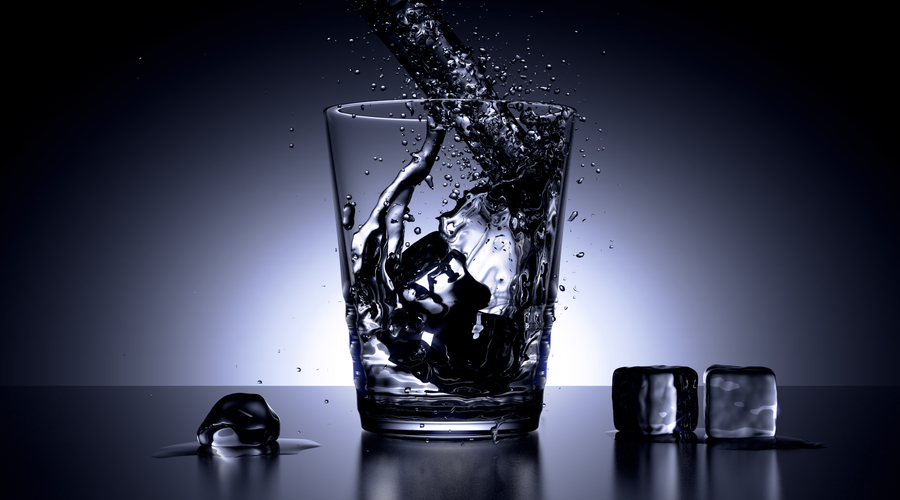The definition of dehydration is related to the excessive loss of body fluids and the terminology derives from the Greek “hydor” – water and the Latin prefix “de” – privation, the lack also appears when the water contribution is lower than the losses incurred by the body.
An adult body is around 65% water that is found in cells, blood and within cells, and the survival is ensured by a sophisticated system of water control that issues an alert through thirst. The natural losses caused by breath, the internal consumption and excretory system are regulated by the water intake from food, and as defensive mechanism, in case of dehydration, the body concentrates water where water is most needed.
Even a loss of up to 2% of the water in the body causes dehydration symptoms, the appearance of thirst being the first sign, besides the decreased urine output and intense urine colouration, tiredness, irascibility, depression, lack of tears, headaches, dizziness, insomnia and a general poor condition. As this percentage increases, the symptoms become more severe and are joined by arrhythmia, high blood pressure, light-headedness, constipation, high temperature, nausea. At 10%, you have muscle spasms, the skin becomes very fragile and breaks, and the vision is blurred. A 15% loss is fatal.
What causes dehydration?
Besides the low water consumption or loss, there are some additional factors that contribute:
- Diarrhoea: as a symptom of an infection or disease, is the most common cause of dehydration because it prevents water absorption from food into the small intestine.
- Vomiting: leads to the quick loss of a significant quantity of water and mineral salts
- Sweating: it is the method of adjusting the body temperature and this process consumes a lot of water, especially in the hot season or during physical exercise.
- Diabetes: the high level of blood sugar causes frequent urination and abundant sweating.
- Burns: water goes to the areas where the skin is burnt and the body loses fluid extremely quickly.
- Alcohol consumption: Alcohol blocks the release of vasopressin (a hormone that inhibits the release of water through kidneys – editor’s note), and the urine will be diluted and eliminated in a large quantity”, explains dr. Mihaela Bilic, nutritionist.
More prone to the dehydration risk are the children who do not identify very clearly the thirst, are more active physically and more sensitive to the rises in temperature. Most of the times, they play and forget to drink water for hours which very quickly leads to the worsening of their general condition and, in time, this can cause health problems. There are several methods through which you can convince them to drink more water and most of them successfully apply as well to the active adults who don’t have time or forget to drink water or prefer other drinks to water.
Taguri:
aqua carpatica
dehydration
hydration
water


Niciun comentariu